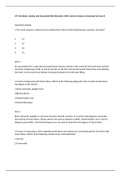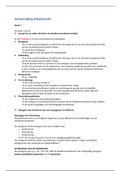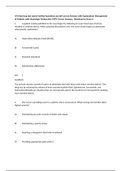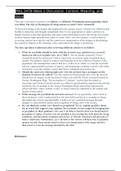Exam (elaborations)
ATI Test Bank, Cardiac and Associated Risk Disorders 100% Correct Answers, Download to Score A
- Course
- ATI Test Bank, Cardiac and Associated Risk Disorders 100% Correct Answers, Download to Score A
- Institution
- Chamberlain College Of Nursing
ATI Test Bank, Cardiac and Associated Risk Disorders 100% Correct Answers, Download to Score A MULTIPLE CHOICE 1.The nurse suspects a clients heart is failing when which of the following heart sounds is assessed? 2.A client is diagnosed with heart failure. Which of the following diagnostic tests ...
[Show more]







